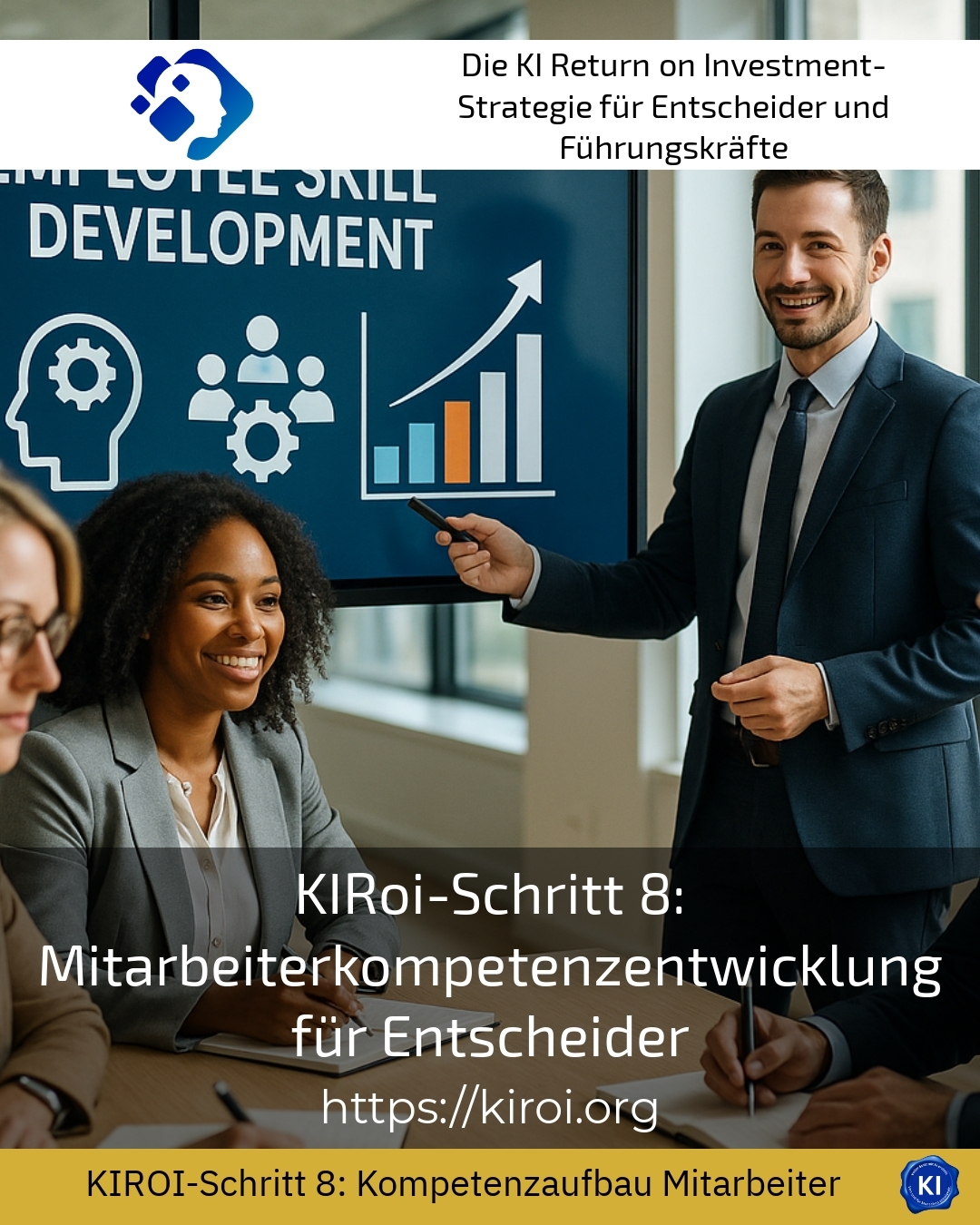Targeted employee skills development is a key lever for sustainable success in modern organisations. Decision-makers who strategically support this process create the basis for innovation, motivation and long-term competitiveness. Employee competence development means specifically promoting knowledge, skills and behaviours that are relevant to the company's objectives. Many managers report that they seek support in implementing such measures because they are often confronted with different needs, resources and motivations.
Why employee skills development is important for decision-makers
Companies benefit when they systematically develop the skills of their employees. Targeted employee skills development leads to greater efficiency, better quality and less staff turnover. Decision-makers recognise that they are not only responsible for the strategic direction, but also for the development of the people in the company. Clients often come to us with questions such as: „How can we make our teams fit for new challenges?“ or „Which methods are really effective?“
Practical examples show that companies with active employee skills development react more quickly to market changes. Banks, for example, benefit from employees who use new digital tools with confidence. In the healthcare sector, clinics are focussing on continuous further training in order to meet increasing demands. Companies in the retail sector are also focussing on targeted training to improve customer service and sales strategies.
Employee skills development in practice
Methods of employee competence development
There are numerous ways to organise employee skills development. Many organisations rely on mentoring, coaching and workshops. Others use job rotation, project work or on-the-job training. Each method has its strengths and is suitable for different situations.
Example: A technology company uses internal mastermind groups to share knowledge between departments. An insurance company uses regular simulations to prepare employees for complex customer enquiries. A craft business uses job rotation to encourage employees to gain varied experience.
Individual development plans
A central component of employee skills development is the creation of individual development plans. These are based on the employees' needs and the company's strategic goals. Regular feedback meetings help to review progress and discover new development potential.
Example: A marketing agency creates a development plan for each employee that addresses strengths and weaknesses. A logistics company uses 360-degree feedback to take different perspectives into account. A training provider relies on regular skills analyses to determine the need for further training.
Employee skills development and transruption coaching
Transruption coaching supports organisations in projects relating to employee skills development. It provides impulses on how teams and managers can prepare for change. We often support the introduction of new methods, the design of workshops or the development of competency models.
Example: A medium-sized company wants to make its managers fit for agile methods. We support the process with targeted coaching and workshops. A large corporation is planning a digital transformation and needs support in developing skills for new technologies. We work with the managers to develop customised measures.
BEST PRACTICE with one customer (name hidden due to NDA contract) In an international company, managers were faced with the challenge of qualifying their teams for new digital processes. Together with the managers, we developed a multi-stage programme that combined mentoring, workshops and individual development plans. The employees were able to develop their skills in a targeted manner and became multipliers within the company. Satisfaction and motivation increased significantly and the new processes were implemented smoothly.
My analysis
Employee competence development is not a one-off act, but a continuous process. Decision-makers who strategically accompany this process create the conditions for sustainable success. The combination of individual development plans, targeted measures and regular feedback meetings is particularly effective. Transruption coaching provides support in choosing the right methods and successfully implementing the changes.
Further links from the text above:
Popular methods for developing the skills of company employees
11 Employee development methods & benefits
Successful skills development: 9 tips and 3 methods
For more information and if you have any questions, please contact Contact us or read more blog posts on the topic Artificial intelligence here.















